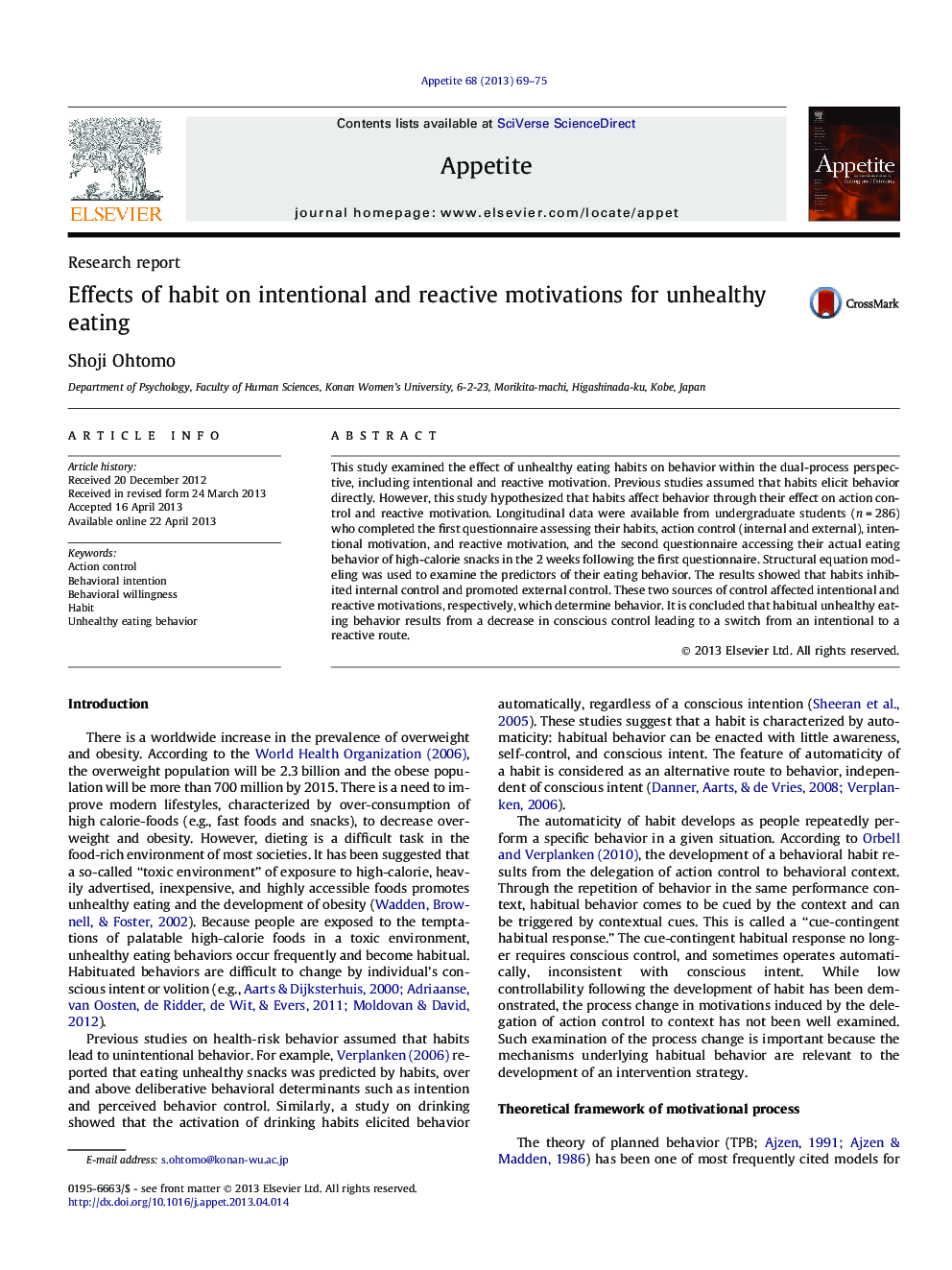| Article ID | Journal | Published Year | Pages | File Type |
|---|---|---|---|---|
| 7310829 | Appetite | 2013 | 7 Pages |
Abstract
This study examined the effect of unhealthy eating habits on behavior within the dual-process perspective, including intentional and reactive motivation. Previous studies assumed that habits elicit behavior directly. However, this study hypothesized that habits affect behavior through their effect on action control and reactive motivation. Longitudinal data were available from undergraduate students (n = 286) who completed the first questionnaire assessing their habits, action control (internal and external), intentional motivation, and reactive motivation, and the second questionnaire accessing their actual eating behavior of high-calorie snacks in the 2 weeks following the first questionnaire. Structural equation modeling was used to examine the predictors of their eating behavior. The results showed that habits inhibited internal control and promoted external control. These two sources of control affected intentional and reactive motivations, respectively, which determine behavior. It is concluded that habitual unhealthy eating behavior results from a decrease in conscious control leading to a switch from an intentional to a reactive route.
Related Topics
Life Sciences
Agricultural and Biological Sciences
Food Science
Authors
Shoji Ohtomo,
